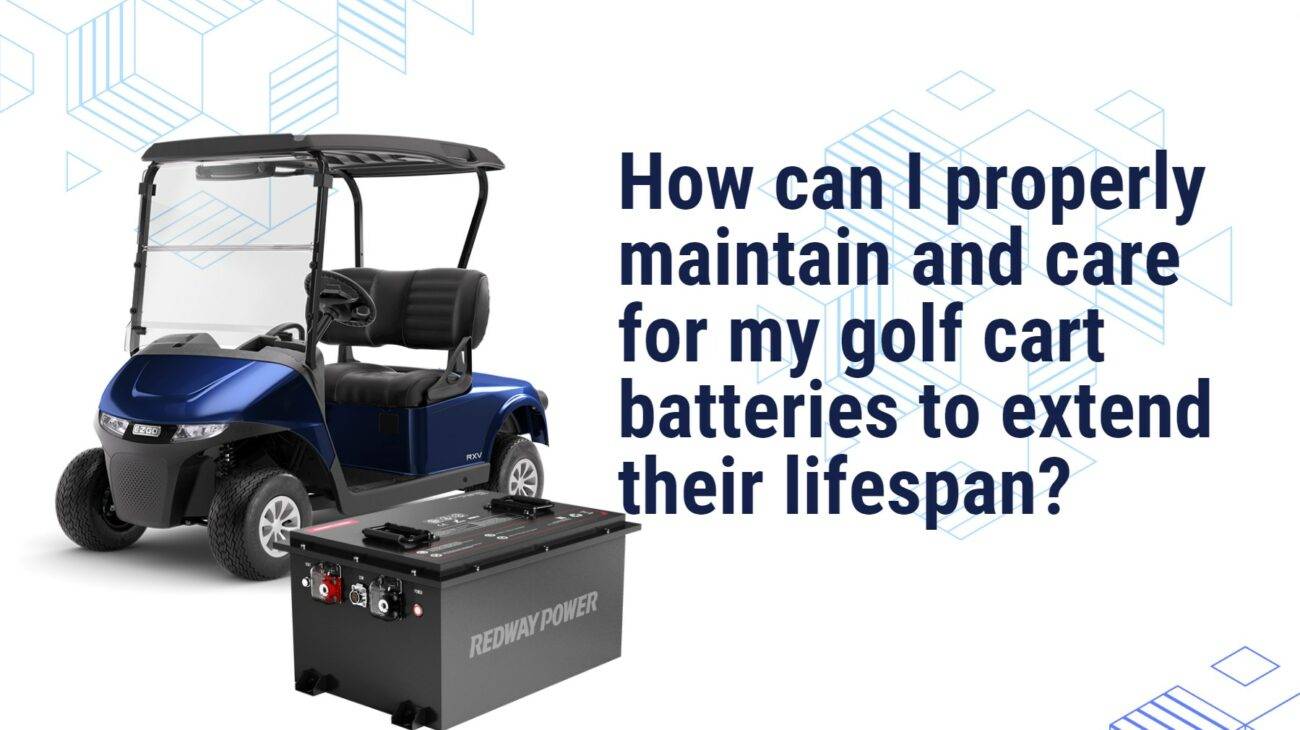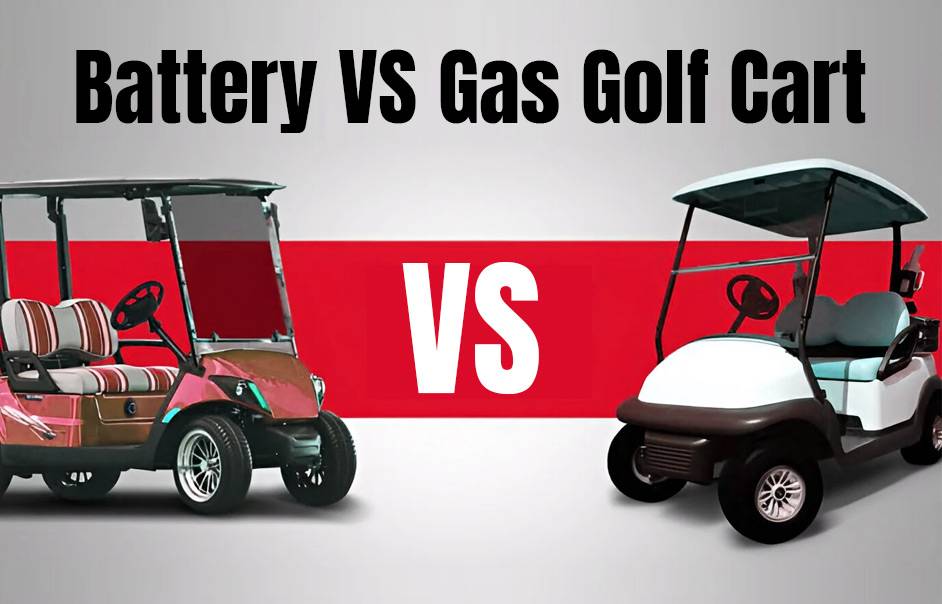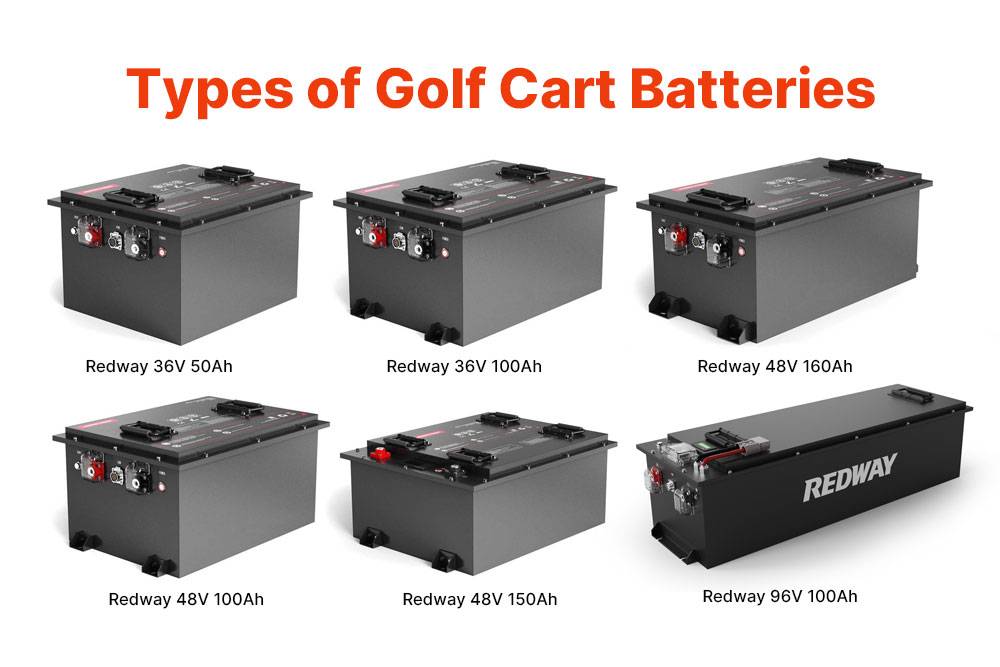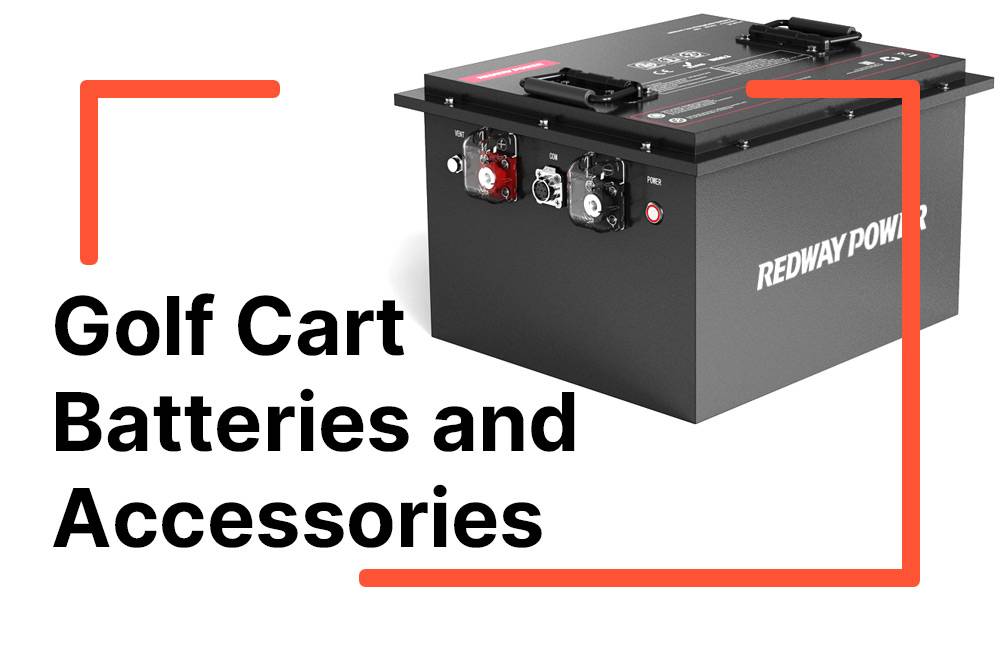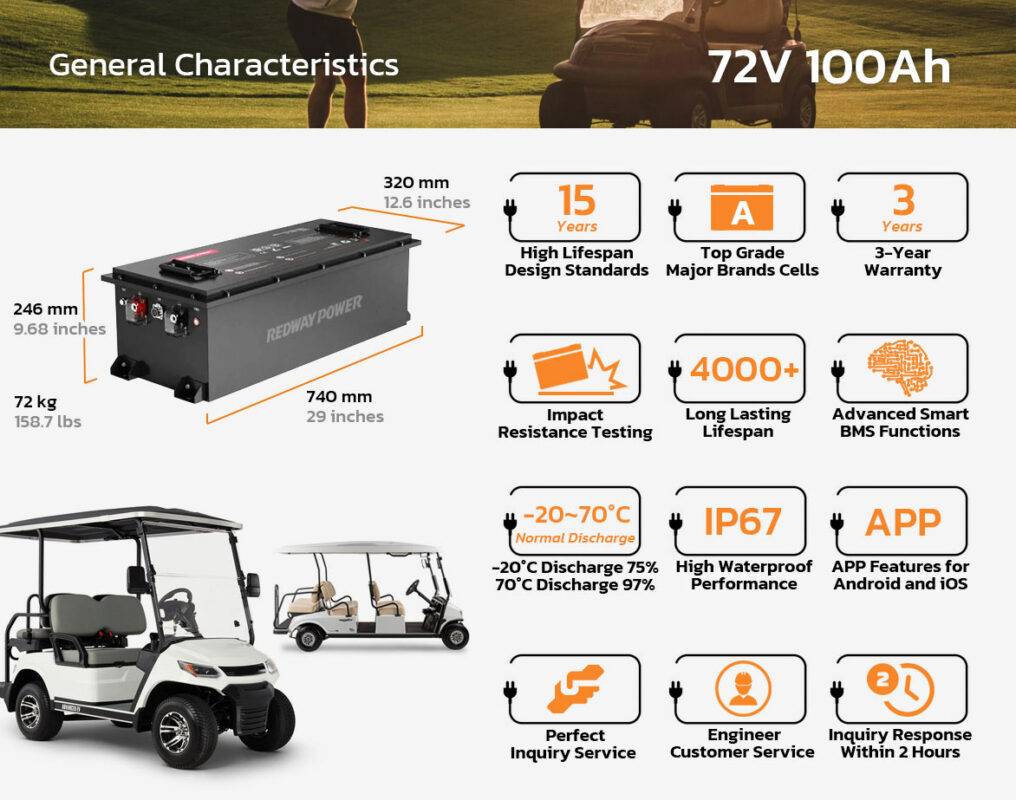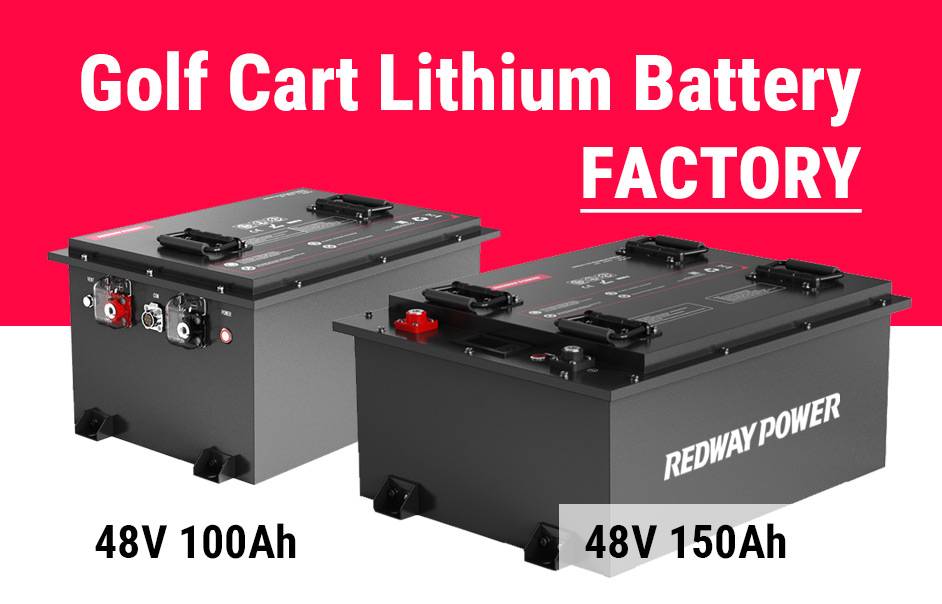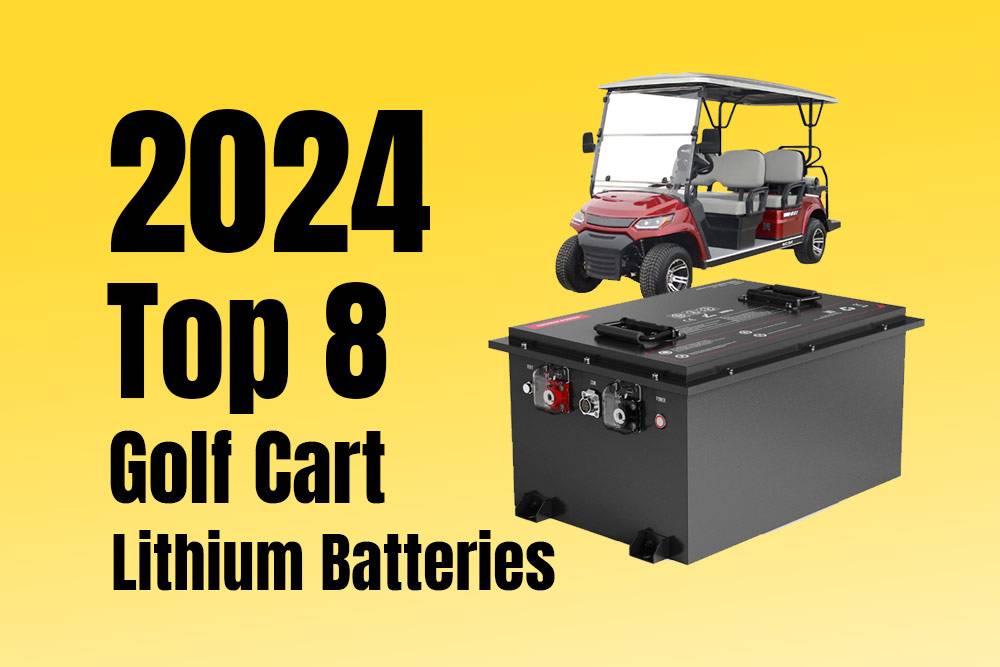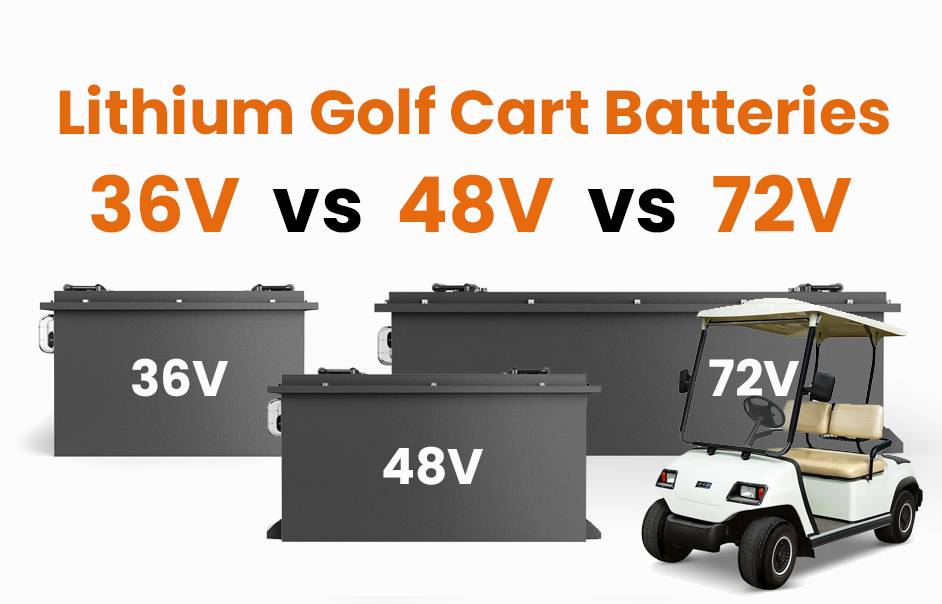- Forklift Lithium Battery
-
48V
- 48V 210Ah
- 48V 300Ah
- 48V 420Ah (949 x 349 x 569 mm)
- 48V 420Ah (950 x 421 x 450 mm)
- 48V 456Ah
- 48V 460Ah (830 x 630 x 590 mm)
- 48V 460Ah (950 x 421 x 450 mm)
- 48V 460Ah (800 x 630 x 600 mm)
- 48V 460Ah (820 x 660 x 470 mm)
- 48V 500Ah
- 48V 560Ah (810 x 630 x 600 mm)
- 48V 560Ah (950 x 592 x 450 mm)
- 48V 600Ah
- 48V 630Ah
-
48V
- Lithium Golf Cart Battery
- 12V Lithium Battery
12V 150Ah Lithium RV Battery
Bluetooth App | BCI Group 31
LiFePO4 Lithium
Discharge Temperature -20°C ~ 65°C
Fast Charger 14.6V 50A
Solar MPPT Charging - 24V Lithium Battery
- 36V Lithium Battery
- 48V Lithium Battery
-
48V LiFePO4 Battery
- 48V 50Ah
- 48V 50Ah (for Golf Carts)
- 48V 60Ah (8D)
- 48V 100Ah (8D)
- 48V 100Ah
- 48V 100Ah (Discharge 100A for Golf Carts)
- 48V 100Ah (Discharge 150A for Golf Carts)
- 48V 100Ah (Discharge 200A for Golf Carts)
- 48V 150Ah (for Golf Carts)
- 48V 160Ah (Discharge 100A for Golf Carts)
- 48V 160Ah (Discharge 160A for Golf Carts)
-
48V LiFePO4 Battery
- 60V Lithium Battery
-
60V LiFePO4 Battery
- 60V 20Ah
- 60V 30Ah
- 60V 50Ah
- 60V 50Ah (Small Size / Side Terminal)
- 60V 100Ah (for Electric Motocycle, Electric Scooter, LSV, AGV)
- 60V 100Ah (for Forklift, AGV, Electric Scooter, Sweeper)
- 60V 150Ah (E-Motocycle / E-Scooter / E-Tricycle / Tour LSV)
- 60V 200Ah (for Forklift, AGV, Electric Scooter, Sweeper)
-
60V LiFePO4 Battery
- 72V~96V Lithium Battery
- Rack-mounted Lithium Battery
- E-Bike Battery
- All-in-One Home-ESS
- Wall-mount Battery ESS
-
Home-ESS Lithium Battery PowerWall
- 24V 100Ah 2.4kWh PW24100-S PowerWall
- 48V 50Ah 2.4kWh PW4850-S PowerWall
- 48V 50Ah 2.56kWh PW5150-S PowerWall
- 48V 100Ah 5.12kWh PW51100-F PowerWall (IP65)
- 48V 100Ah 5.12kWh PW51100-S PowerWall
- 48V 100Ah 5.12kWh PW51100-H PowerWall
- 48V 200Ah 10kWh PW51200-H PowerWall
- 48V 300Ah 15kWh PW51300-H PowerWall
PowerWall 51.2V 100Ah LiFePO4 Lithium Battery
Highly popular in Asia and Eastern Europe.
CE Certification | Home-ESS -
Home-ESS Lithium Battery PowerWall
- Portable Power Stations
How to Ensure Optimal Performance from Your Deep Cycle Golf Cart Batteries
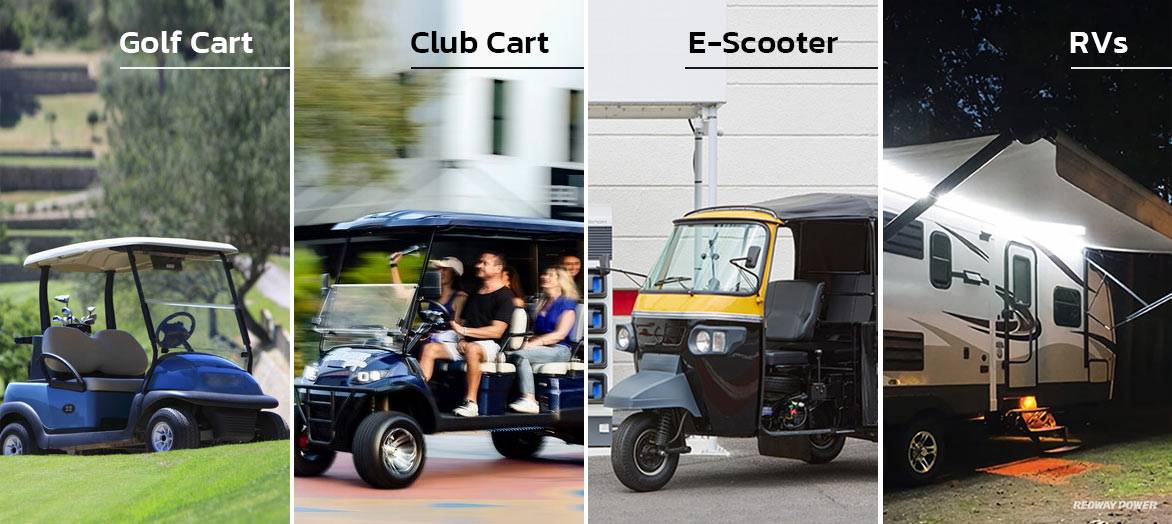
Ensuring optimal performance from your deep cycle golf cart batteries is essential for prolonged use and reliability on the course or in other applications. The key to maintaining these batteries lies in understanding their types, proper maintenance practices, and recognizing when they need replacement. This guide will provide essential insights into maximizing battery life and performance.
What are the different types of deep cycle golf cart batteries?
Deep cycle golf cart batteries primarily come in four types: Flooded Lead Acid, Absorbent Glass Mat (AGM), Gel, and Lithium-Ion. Each type has unique characteristics suited for different applications.
| Battery Type | Characteristics | Advantages | Disadvantages |
|---|---|---|---|
| Flooded Lead Acid | Requires regular maintenance, liquid electrolyte | Cost-effective, widely available | Needs frequent watering, shorter lifespan |
| AGM | Sealed, maintenance-free, absorbs electrolyte | Spill-proof, longer lifespan | Higher initial cost |
| Gel | Thicker electrolyte, less prone to leakage | Maintenance-free, good deep cycling | Sensitive to overcharging |
| Lithium-Ion | Lightweight, rapid charging | Long lifespan, deep discharge capability | Higher upfront cost |
How do you choose the right battery for your golf cart?
Choosing the right battery involves considering several factors:
- Voltage Requirements: Ensure compatibility with your cart’s voltage (typically 36V or 48V).
- Capacity (Ah): Assess your usage needs to determine the appropriate amp-hour rating for extended run time.
- Brand Reputation: Opt for reputable brands known for reliability and warranty support.
- Cost vs. Longevity: While cheaper options may be tempting, investing in quality batteries can save money over time.
Why is proper maintenance essential for deep cycle batteries?
Proper maintenance is crucial as it directly impacts battery longevity and performance. Regularly checking water levels (for flooded types), cleaning terminals, and ensuring full charges after each use can prevent sulfation and extend battery life significantly.
| Maintenance Task | Frequency | Purpose |
|---|---|---|
| Check Water Levels | Monthly | Prevents drying out of cells |
| Clean Terminals | Every few months | Reduces corrosion and improves conductivity |
| Full Charge After Use | After each use | Prevents sulfation and maintains capacity |
What factors affect the lifespan of golf cart batteries?
Several factors influence how long your golf cart batteries will last:
- Depth of Discharge: Regularly discharging below 50% can shorten lifespan.
- Temperature: Extreme heat or cold can damage batteries.
- Charging Practices: Overcharging or undercharging can lead to reduced capacity.
- Maintenance: Neglecting maintenance tasks can accelerate wear and tear.
How can you enhance the performance of your golf cart batteries?
To enhance performance:
- Regular Charging: Charge immediately after use to prevent sulfation.
- Proper Storage: Store in a cool, dry place during off-seasons; consider using a maintainer.
- Avoid Deep Discharges: Keep discharges above 50% whenever possible.
- Use Quality Chargers: Ensure chargers are compatible with your battery type.
What are common signs that indicate it’s time to replace your golf cart battery?
Common indicators include:
- Reduced run time or power output.
- Prolonged charging times.
- Physical damage or swelling in the battery casing.
- Inability to hold a charge effectively.
How should you store golf cart batteries during off-seasons?
Proper storage is vital during off-seasons:
- Fully charge the batteries before storage.
- Disconnect cables to prevent slow discharge.
- Store in a cool, dry environment away from extreme temperatures.
- Check charge levels every few months and recharge as necessary.
Industrial News
The market for deep cycle golf cart batteries is evolving with advancements in technology, particularly with lithium-ion options gaining popularity due to their lightweight design and longer lifespan compared to traditional lead-acid models. Manufacturers are also focusing on improving recycling processes for used batteries, aiming to reduce environmental impact while enhancing performance standards across the industry.
Redway Power Insights
“Investing in high-quality deep cycle golf cart batteries is critical not just for immediate performance but also for long-term savings,” states an expert from Redway Power. “Understanding how to maintain these batteries properly can significantly extend their lifespan and ensure reliable operation throughout their service life.”

Latest News
- Recent advancements in lithium battery technology have led to improved energy density and safety features.
- New regulations are being implemented globally to encourage the use of eco-friendly battery alternatives.
- Major manufacturers are investing heavily in research and development for sustainable battery solutions.
- The demand for lithium-ion batteries in recreational vehicles continues to grow, reflecting a shift towards electric mobility.
FAQ Section
Q: How long do deep cycle golf cart batteries last?
A: With proper maintenance, they typically last between 5 to 7 years.Q: Can I use car batteries in my golf cart?
A: No, car batteries are not designed for deep cycling and may damage your golf cart’s electrical system.Q: How often should I check my battery water levels?
A: For flooded lead-acid batteries, check water levels monthly.Q: What should I do if my battery won’t hold a charge?
A: Test the battery’s voltage; if it’s low or shows signs of damage, it may need replacement.
How do you properly maintain deep cycle golf cart batteries?
Proper maintenance is essential for extending the life of deep cycle golf cart batteries. Steps include identifying failing batteries, cleaning terminals with a baking soda-water solution, inspecting battery cells, and charging batteries overnight. Test voltage using a hydrometer or multimeter. Following safety precautions and consulting manufacturer guidelines is important. Regular maintenance ensures optimal battery performance and longevity.
What is the average lifespan of deep cycle golf cart batteries?
The average lifespan of a deep cycle golf cart battery is typically between three and six years. Factors such as usage, maintenance, and brand quality can affect battery life. With proper care, some batteries may last up to ten years, while others may only endure three years. Regular maintenance, proper charging, and monitoring water levels can help maximize the battery’s longevity.
Can you interchange different voltage batteries in a golf cart?
No. It is not recommended to interchange different voltage batteries in a golf cart. Mixing different voltages can cause uneven power distribution, charging issues, and impact battery life. Golf carts are designed for specific voltage systems (e.g., 36V or 48V), and using batteries of the same voltage and type ensures optimal performance and safety. Always stick to batteries that match the required voltage for your golf cart.
What are the signs that a golf cart battery needs to be replaced?
Signs that a golf cart battery needs replacement include slow charging times, reduced distance coverage, slower acceleration, and physical signs like leaking acid, bulging, or corrosion. Prompt action is important to prevent complete battery failure. If you notice any of these signs, it may be time to consider replacing your golf cart battery.
How do differences in amp hours affect the performance of golf cart batteries?
The performance of golf cart batteries is influenced by their amp hour (AH) rating. Higher AH means longer run time and more power for the cart and accessories. Voltage also plays a role, as multiplying voltage by AH gives you watt hours (Wh), indicating battery power. Standard golf carts with 36V batteries typically offer a range of 20-25 miles with a 72Ah battery and 30-35 miles with a 105-108Ah battery. Choosing the right AH ensures optimal performance for your golf cart.
What is the proper way to store deep cycle golf cart batteries when not in use?
To store deep cycle golf cart batteries properly when not in use, one should fully charge the batteries, disconnect them to prevent parasitic drain, and keep them in a cool, dry place. For long-term storage, it’s important to monitor and maintain the charge to avoid deep discharge.
Can lithium batteries series up to 120 to 150 volts for a golf cart that requires 120 volts?
When upgrading a golf cart to lithium batteries, you can achieve a 120-volt system by connecting multiple lithium cells in series. However, it’s important to note that the specific voltage requirements and limitations of the golf cart should be considered. It is recommended to consult with a professional or the golf cart manufacturer to ensure safety and compatibility with the desired voltage configuration.
Can lithium batteries be used in a 72V system with Delta Q charger compatibility?
When using lithium batteries in a 72V system with Delta-Q charger compatibility, it’s important to note that Delta-Q chargers require a Battery Management System (BMS) for monitoring individual cells. This ensures safety and prevents potential issues. Make sure to integrate a proper BMS for safety and compatibility when considering lithium batteries for your 72V system.
What are the recommendations for replacing 6 8-volt lead-acid batteries in a 2014 EZGO TXT 48 with lithium batteries?
When replacing the 6 8-volt lead-acid batteries in your 2014 EZGO TXT 48 with lithium batteries, consider using LiFePO4 (Lithium Iron Phosphate) batteries for longevity, safety, and performance. Ensure compatibility with your golf cart’s voltage (usually 48V). Remove the old batteries and install the new lithium batteries using the same wiring. Choose different amp-hour (A/H) ratings based on your desired range. Prioritize safety during installation and enjoy the benefits of lithium batteries in your golf cart!
What are the battery and charger recommendations for an EZGO Freedom golf cart that needs new batteries and a charger?
When looking for battery and charger recommendations for your EZGO Freedom golf cart, consider using LiFePO4 batteries for their longevity, safety, and performance. Ensure the batteries are compatible with your golf cart’s voltage (36V or 48V). Choose a 36V or 48V charger specifically designed for EZGO golf carts, considering safety features, user-friendliness, and compatibility with your battery type. Follow proper charging routines for optimal performance. Enjoy your renewed golf cart experience!

















